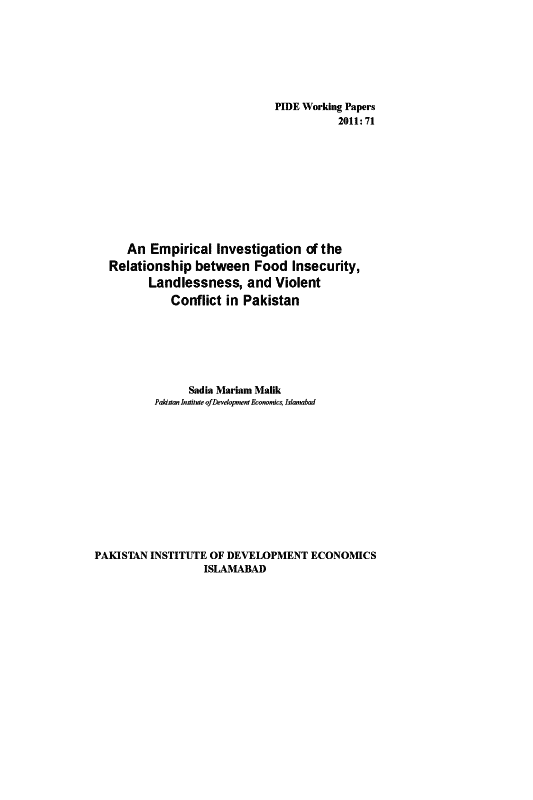An Empirical Investigation of the Relationship between Food Insecurity, Landlessness, and Violent Conflict in Pakistan
This study is an attempt to examine empirically the association between socio-economic measures of deprivation—such as food insecurity, landlessness, unemployment, and human under-development—and the incidence of violent conflict as measured by the number of violent attacks across districts in Pakistan. The study uses a linear probability model in which the dependent variable is defined on the basis of the presence or absence of violent attacks in a particular district. The results of the study indicate that in addition to the provincial-level fixed characteristics, landlessness and food insecurity are positively and robustly associated with the probability of violent attacks across districts in Pakistan. Quite contrary to the general impression held, the number of madrassahs (religious seminaries), employment rate, and literacy rate appear to be statistically irrelevant, on average, in terms of determining the probability of the presence of violent conflict across districts in Pakistan. While emphasising the need to collect better data on the intensity of violent conflict— to take into account both the incidence as well as the origin of violent attacks across districts in Pakistan—the study raises some important questions regarding the role of landlessness and food insecurity that need to be investigated further in future studies on socio-economic drivers of violent conflict in Pakistan.




